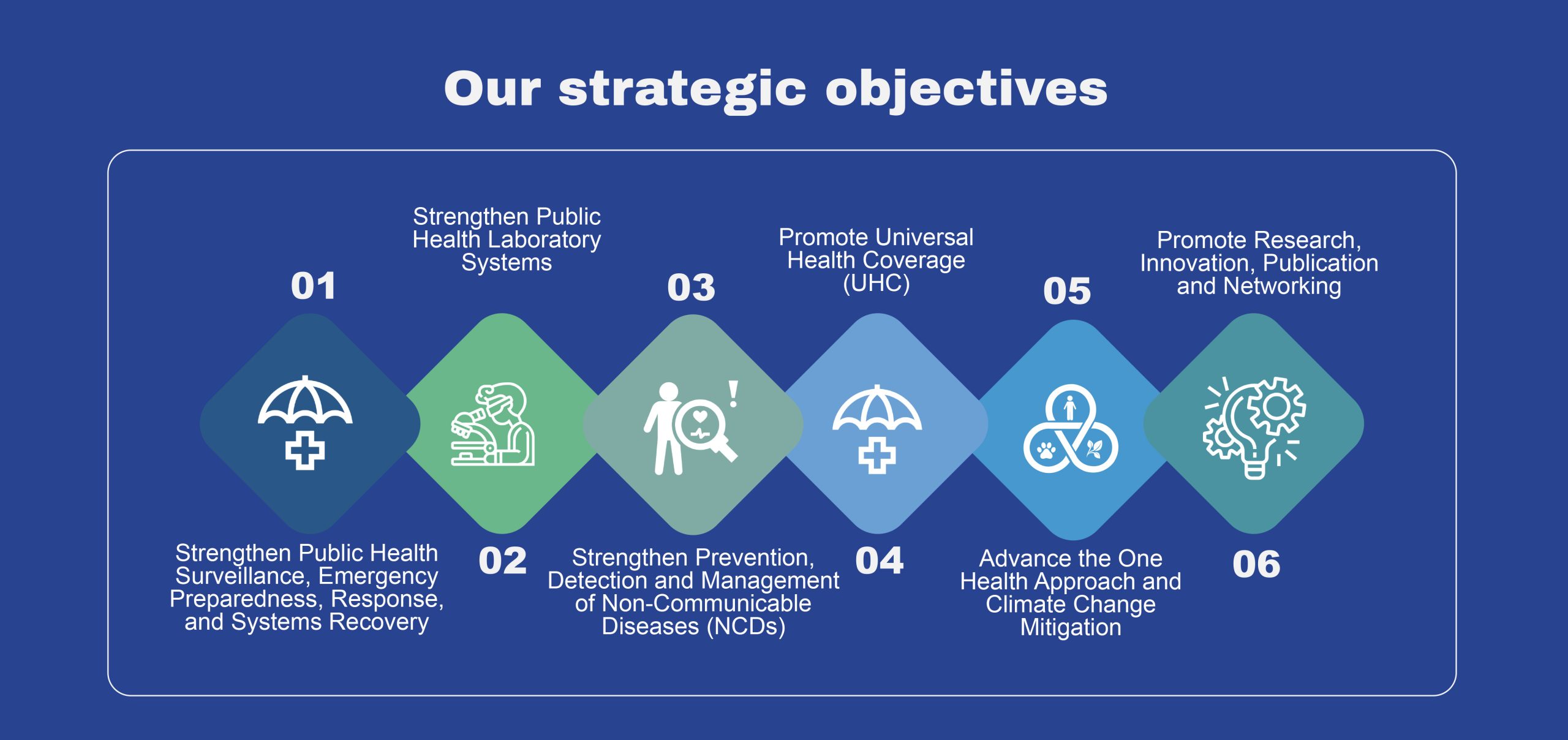
A resilient health system has all six building blocks functioning optimally in synergy. Through this objective, AFENET will contribute to strengthening health information systems, service delivery and the health workforce. Specifically, we will focus on enhancing collaborative and integrated public health surveillance and digitizing surveillance functions. We will support countries to improve their IHR core capacities for more effective responses to public health threats and catalyse health system recovery. We will accelerate health workforce development through FE(L)TPs, building on the gains already made.
Cognizant of the critical role of laboratories in informing clinical care and public health actions, we will support strengthening of national public health laboratory systems to meet the PEPFAR 5-3 Five Year Strategy, the Global Health Security Agenda, WHO Global Action Plan on Antimicrobial Resistance, international laboratory accreditation requirements and other continental as well as global goals. Collaborating with global and regional bodies such as WHO, Africa CDC, ASLM, and CARICOM, we will support access to skilled personnel in laboratory systems, informatics, data and epidemiology. We aim to enhance laboratory surveillance and data systems and improve the supply chains in regional and national public health infrastructure with a focus on advancing a multiplexed and networked diagnostic approach.
Non-communicable diseases (NCDs) such as cancer, respiratory diseases, cardiovascular diseases, diabetes, mental disorders and injuries are increasingly becoming the main causes of morbidity and mortality in sub-Saharan Africa. Through this strategic objective, we will strengthen the implementation of ‘best buys’ in NCD control to reduce the morbidity and mortality associated with NCDs.
Universal Health Coverage (UHC) means that all people have access to the full range of quality health services they need, when and where they need them, without financial hardship. Key bottlenecks to achieving UHC have been access, equity, quality and cost efficiencies. Most (90%) essential UHC interventions can be delivered through PHC and there are significant cost efficiencies in using an integrative PHC approach that focuses on preventive services including vaccination. Additionally, health security will not be achieved without a strong PHC. Our focus will be strengthening health delivery at the PHC through immunization and digital health.
One Health contributes to global health security by fostering collaboration across sectors and disciplines, emphasizing shared governance, communication and coordination. One Health (OH) challenges include emerging, re-emerging, and endemic zoonotic diseases, neglected tropical diseases, vector-borne diseases, antimicrobial resistance, food safety and food security, environmental contamination, climate change, planetary health and other health threats shared by people, animals, and the environment. Over the next five years, we will focus on strengthening a multisectoral approach to combat AMR and emerging and re-emerging diseases; improve food safety and OH surveillance; and mitigate climate-related threats.
Promoting research, innovation, publication, and networking in public health requires fostering an environment that encourages new ideas; supports rigorous scientific investigation; facilitates the dissemination and exchange of knowledge; and promotes a culture of evidence-based decision-making in policy formulation and public health practice. Networking platforms such as alumni associations and communities of practice are crucial for building partnerships and addressing global health challenges.
AFENET will strive to create such an environment by expanding its research and other partnerships; organizing scientific conferences; promoting open-access and other types of publications; and providing resources to its membership for operational research.